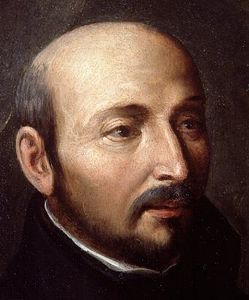A Quote by Ralph Waldo Emerson
Why should we assume the faults of our friend, or wife, or father, or child, because they sit around our hearth, or are said to have the same blood?
Related Quotes
Though there is a benevolence due to all mankind, none can question but a superior degree of it is to be paid to a father, a wife, or child. In the same manner, though our love should reach to the whole species, a greater proportion of it should exert itself towards that community in which Providence has placed us. This is our proper sphere of action, the province allotted us for the exercise of our civil virtues, and in which alone we have opportunities of expressing our goodwill to mankind.
Why? Why should the bond between a people and their baseball team be so intense? Fenway Park is a part of it, offering a physical continuum to the bond, not only because Papi can stand in the same batter's box as Teddy Ballgame, but also because a son might sit in the same wooden-slat seat as his father.
You know, my father was a great encouragement for me because he spoke out for women's rights, he spoke out for girl's education. And at that time I said that why should I wait for someone else, why should I be looking to the government, to the army that they would help us? Why don't I raise my voice, why don't we speak up for our rights?
The impulse to confession almost always requires the presence of a fresh ear and a fresh heart; and in our moments of spiritual need, the man to whom we have no tie but our common nature, seems nearer to us than mother, brother, or friend. Our daily familiar life is but a hiding of ourselves from each other behind a screen of trivial words and deeds, and those who sit with us at the same hearth, are often the farthest off from the deep human soul within us, full of unspoken evil and unacted good.
I really don't know why it is that all of us are so committed to the sea, except I think it is because in addition to the fact that the sea changes and the light changes, and ships change, it is because we all came from the sea. And it is an interesting biological fact that all of us have, in our veins the exact same percentage of salt in our blood that exists in the ocean, and, therefore, we have salt in our blood, in our sweat, in our tears. We are tied to the ocean. And when we go back to the sea, whether it is to sail or to watch it we are going back from whence we came.
My father wasn't around when I was a kid, and I used to always say, 'Why me? Why don't I have a father? Why isn't he around? Why did he leave my mother?' But as I got older I looked deeper and thought, 'I don't know what my father was going through, but if he was around all the time, would I be who I am today?'
If a friend is the one who summons us to our best, then is not Jesus Christ our best friend, and should we not think of the Communion as one of His chief appeals to us to be our best? The Lord's Supper looks not back to our past with a critical eye, but to our future, with a hopeful one. The Master appeals from what we have been to what we may be. He bids us come, not because we are better than we have been, but because He wants us to be. To stay away because our hearts are cold is to refuse to go to the fire till we are warm.
Why should we be willing to go by faith? We do all things in this world by faith in the word of others. By faith only we know our position in the world, our circumstances, our rights and privileges, our fortunes, our parents, our brothers and sisters, our age, our mortality. Why should Religion be an exception?
("Let's stand under a tree," she said. "Why?" "Because it's nicer." "Maybe you should sit on a chair, and I'll stand above you, like they always do with husbands and wives." "That's stupid." "Why's it stupid?" "Because we're not married." "Should we hold hands?" "We can't." "But why?" "Because, people will know." "Know what?" "About us." "So what if they know?" "It's better when it's a secret." "Why?" "So no one can take it from us.")
Solidarity does not assume that our struggles are the same struggles, or that our pain is the same pain, or that our hope is for the same future. Solidarity involves commitment, and work, as well as the recognition that even if we do not have the same feelings, or the same lives, or the same bodies, we do live on common ground.










































